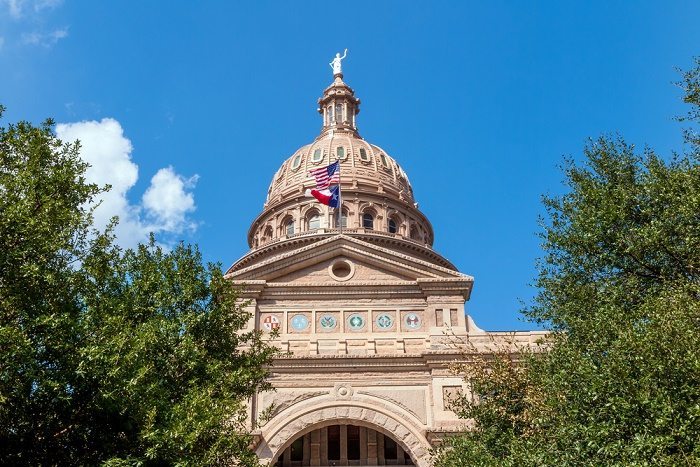Echoes of the ‘People’s Filibuster’ as Abortion Bills Are Heard in Texas
Conservative Texas lawmakers have issued more than two dozen new proposals to further limit access to legal abortion care—more than any other state legislature this year.

Texas lawmakers passed one of the nation’s most sweeping and restrictive anti-choice laws in 2013, shuttering dozens of legal abortion facilities. Now that the state’s biennial legislature is back in session, its conservative lawmakers have issued more than two dozen new proposals to further limit access to legal abortion care—more than any other state legislature this year.
Two of those proposals got a hearing Wednesday night in the House State Affairs Committee. HB 3765 would make it more difficult for teens to get abortion care with a parent’s permission, and HB 3446 would force abortion providers to place signs about the availability of child support inside their clinics.
The bills’ sponsor, state Rep. Jodie Laubenberg (R-Parker), was not on hand to hear testimony on her bills. Laubenberg is the former Texas state chair for the American Legislative Exchange Council (ALEC) and sponsored Texas’ 2013 omnibus anti-abortion law.
There were further echoes of the 2013 legislative session Wednesday night when the committee chair, Rep. Byron Cook, told pro-choice opponents of Laubenberg’s proposed bills not to present “redundant” testimony. Cook shut down testimony for similar reasons during the late-night 2013 “people’s filibuster,” claiming that the hundreds of Texans who’d come to speak out against Laubenberg’s omnibus bill and share their own personal abortion stories were too “repetitive.”
While Texas requires minors who need abortion care to obtain parental consent, HB 3765 would require that parents and teens get their consent forms notarized, which the bill’s supporters said would prevent teens from being coerced by their parents into getting abortions.
Opponents of the bill say this would create another unnecessary hurdle for patients to overcome, as well as violate patient privacy—notary logs are available to the public on request, making the names of teens who are seeking an abortion public to anyone who might ask.
“Accessing an abortion should not involve sharing that with a member of the public,” testified Shelly Carpenter, a board member at the Lilith Fund for Reproductive Equity, which helps Texans obtain financial funding for abortion care.
Rep. Helen Giddings (D-Dallas) asked anti-choice lawyer Stephen Casey from the Texas Center for the Defense of Life, who testified in support of the bill, whether it would be possible for a teenager—who might not have photo identification—to obtain a legal notarized signature on an abortion consent form.
Casey responded that the teen, especially if they lived in a small town, could potentially find a notary who knew them personally, and not be required to present identification. He added that he believed notarization would provide “an independent other step” to make sure abortion is a “free decision.”
The corporate vice-president of one of Texas’ last remaining abortion providers testified that her clinics already screen minors for coercion before they enter exam rooms, and said that HB 3765 “perpetuates a myth about coerced abortion.”
Andrea Ferrigno of Whole Woman’s Health, a comprehensive reproductive health-care provider with locations in Texas, Minnesota, and Maryland, said clinics have “strong safeguards” against coercion and conduct one-on-one consultations with patients to talk about consent.
The second bill, HB 3446, would mandate that abortion providers place signs inside their clinics telling patients that they could not legally be forced to have an abortion against their will, and using “father” and “child” language to suggest that patients instead seek child support or public assistance with continuing their pregnancies.
Rep. Marsha Farney (R-Georgetown) laid out the bill on Laubenberg’s behalf and indicated that it was meant as an anti-human trafficking measure.
Blair Cushing, a fourth-year medical student from North Texas, testified against the bill, saying that the proposal was “very much a targeted regulation of abortion providers,” and that if the state wished to address human trafficking, it should put similar signs in emergency rooms and labor and delivery wards.
Casey, the lawyer who testified in favor of the bill, said the forced signage would inform patients seeking abortions that they could get “this baby daddy to pay” child support if they kept the pregnancy.
Cook said that Laubenberg intends to file a substitute for the abortion clinic signage bill with the committee, amending some of the bill’s existing language.
Both bills were left pending.

